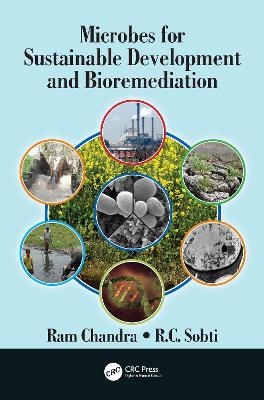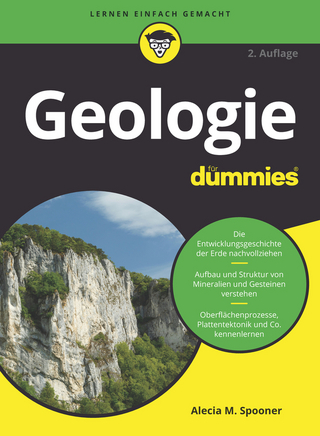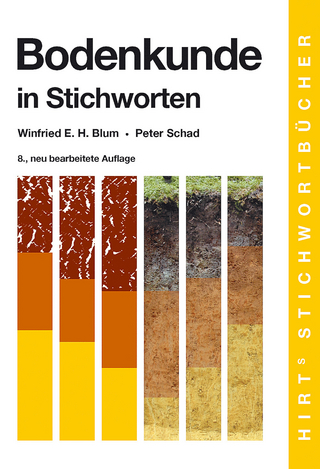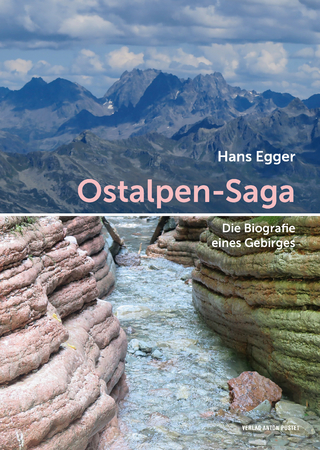
Microbes for Sustainable Development and Bioremediation
CRC Press (Verlag)
978-0-367-22600-8 (ISBN)
Microbes are the predominant form of life on the planet due to their broad range of adaptation and versatile nutritional behavior. The ability of some microbes to inhabit hostile environment incompatible with most forms of life means that their habitat defines the extent of the biosphere and delineates the barrier between the biosphere and geosphere. The direct and indirect role of microbes that include bacteria, fungi, actinomycetes, viruses, mycoplasma, and protozoans are very much important in development of modern human society for food, drugs, textiles, agriculture, and environment. Furthermore, microorganisms and their enzyme system are responsible for the degradation of various organic matters.
Microbes for Sustainable Development and Bioremediation emphasizes the role of microbes for sustainable development of ecosystem. Environmental microbiology role in biogeochemical cycle and bioremediation of environmental waste is major theme, which comprises the following aspects:
Bacterial phytoextraction mechanism of heavy metals by native hyperaccumulator plants from complex waste-contaminated site for eco-restoration
Role of microbial enzyme for eco-friendly recycling of industrial waste
Field-scale remediation of crude oil–contaminated desert soil and treatment technology
Microbial technology for metal recovery from e-waste printed circuit board
Impact of genomic data on sustainability of ecosystem
Methane monooxygenases: their regulations and applications
Role of microbes in environmental sustainability and food preservation
This book will be directly beneficial to researchers and classroom students, in areas of biotechnology, environmental microbiology, molecular biology, and environmental engineering with specialized collection of cutting-edge knowledge.
Ram Chandra is currently professor in Department of Microbiology, School for Environmental Sciences, B.B Ambedkar University (A Central University), Lucknow, India. He has obtained his B.Sc. (Hons.) & M.Sc. from Banaras Hindu University (BHU), Varanasi, India, 1987. Subsequently, his Ph.D. was awarded in 1994. He has internationally lead work on bacterial degradation of chlorolignin compounds for detoxification of pulp paper & mill effluent and molasses melanoidin compounds of distillery waste. He has published more than160 original research papers in peer reviewed journal of high impact, review article & technical reports with citations 2700 and h-index 32. He has published six books from CRC Press, USA, CBS Publisher India and more than 30 book chapters on biodegradation and bioremediation of industrial pollutants. He has been awarded Fellow of the Academy of Environmental Biology (FAEB), Fellow of the Association of Microbiologists of India (FAMI), and Fellow of the Biotech Research Society of India (FBRSI). He is also the member in International Academic of Sciences, Indian Science Congress, The Association for Overseas Technical Scholarship (AOTS), Japan. He has received several honors and awards from National Agency. He is reviewer in various International journal of high reputed published from peer-reviewed journals from Elsevier-USA, Springer-USA, Taylor & Francis-USA and John Wiley & Sons-USA. Prof. Ram Chandra has also trained scientists from Germany and Nigeria under the TWAS-CSIR fellowship programme. He has completed more than 25 Grant-in-Aid projects funded from Ministry of Environment & Forests (MoEF) New Delhi, Department of Science and Technology (DST) India. Department of Biotechnology (DBT) & Council of Scientific & Industrial Research (CSIR), India. R.C. Sobti is currently Professor Emeritus Department of Biotechnology, Panjab University, Chandigarh and former Vice Chancellor B.B. Ambedkar University (A Central University), Panjab University, Chandigarh. He has completed his Ph.D. (1974) from Panjab University, Chandigarh and D.Sc. (2011) from Himachal Pradesh University India, His main contribution is in cancer biology. He has demonstrated that the regulation of stem cell character under in-vitro conditions is a function of morphological assortment of Solid Lipid Nano Particles (SLNC). Ha has published more than 180 research paper, technical reports & review article in peer reviewed journal with more than 2600 citations. He has published 35 books and completed 23 sponsored research project funded from various agencies. He is indeed, a polymath a renowned academician, distinguished scientists, dynamic administrator and a visionary gifted with an immensely optimistic disposition and integrity of character, words and action. He has been bestowed with Padma Shri in 2009 remarkable leadership and extraordinary contribution in higher education. He has been also honored with Bharat Gaurav, Life time achievement award at the House of Commons, British Parliament London, United Kingdom. Professor Sobti is a Fellow of the Third World Academy of Sciences (TWAS), National Academy of Sciences, Indian National Science Academy.
Preface. Editors’ Bio. List of Contributors. 1.Bacterial-assisted phytoextraction mechanism of heavy metals by native hyperaccumulator plants from distillery waste contaminated site for eco-restoration. 2.Microbial enzymes for eco-friendly recycling of waste paper by deinking. 3.Advances in the textile wastewater treatment. 4.Microbial degradation of pesticides in the environment. 5.Dissimilatory iron reducing bacteria- a template for iron mineralization and nanomaterials synthesis. 6. Economical approaches to heat and chemical pre-treatment of bacterial cells to enhance metal removal. 7.Field scale remediation of crude oil contaminated desert soil using various treatment technology- a large remediation project case study. 8.Microbial technology for metal recovery from e-waste printed circuit boards. 9.Impact of the genomic data on sustainability, how to discover and apply novel gene products from thermophilic microorganisms. 10.Metagenomics: A genomic tool for monitoring of microbial communities during bioremediation of environmental pollutants. 11.Microbial capacities for utilization of nitroaromatics. 12.Methane Monooxygenases: Their regulations and applications in biofuel production. 13.Plant growth promoting rhizobacteria (PGPR) and bioremediation of industrial waste. 14.Fungi treatment of synthetic dyes by using agroindustrial waste. 15.Beneficial microbes for sustainable agriculture. 16.Detoxification of biomedical waste. 17.Immobilized enzyme-based bio-catalytic cues: an effective approach to tackle industrial effluent waste. 18.Lipase of lactic acid bacteria: diversity and applications. 19.Role of microbes in environmental sustainability and food preservation. 20.Bioinformatics and application in biotechnology. 21.Microbial bioinoculants for sustainable agriculture: trends, constraints and future perspectives. Index.
| Erscheinungsdatum | 24.12.2019 |
|---|---|
| Zusatzinfo | 53 Tables, black and white; 4 Line drawings, color; 130 Line drawings, black and white; 32 Halftones, black and white; 4 Illustrations, color; 162 Illustrations, black and white |
| Verlagsort | London |
| Sprache | englisch |
| Maße | 178 x 254 mm |
| Gewicht | 943 g |
| Themenwelt | Naturwissenschaften ► Geowissenschaften ► Geologie |
| Technik ► Umwelttechnik / Biotechnologie | |
| Weitere Fachgebiete ► Land- / Forstwirtschaft / Fischerei | |
| ISBN-10 | 0-367-22600-6 / 0367226006 |
| ISBN-13 | 978-0-367-22600-8 / 9780367226008 |
| Zustand | Neuware |
| Haben Sie eine Frage zum Produkt? |
aus dem Bereich


